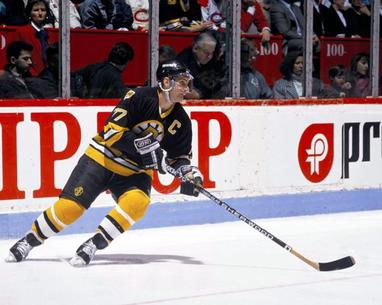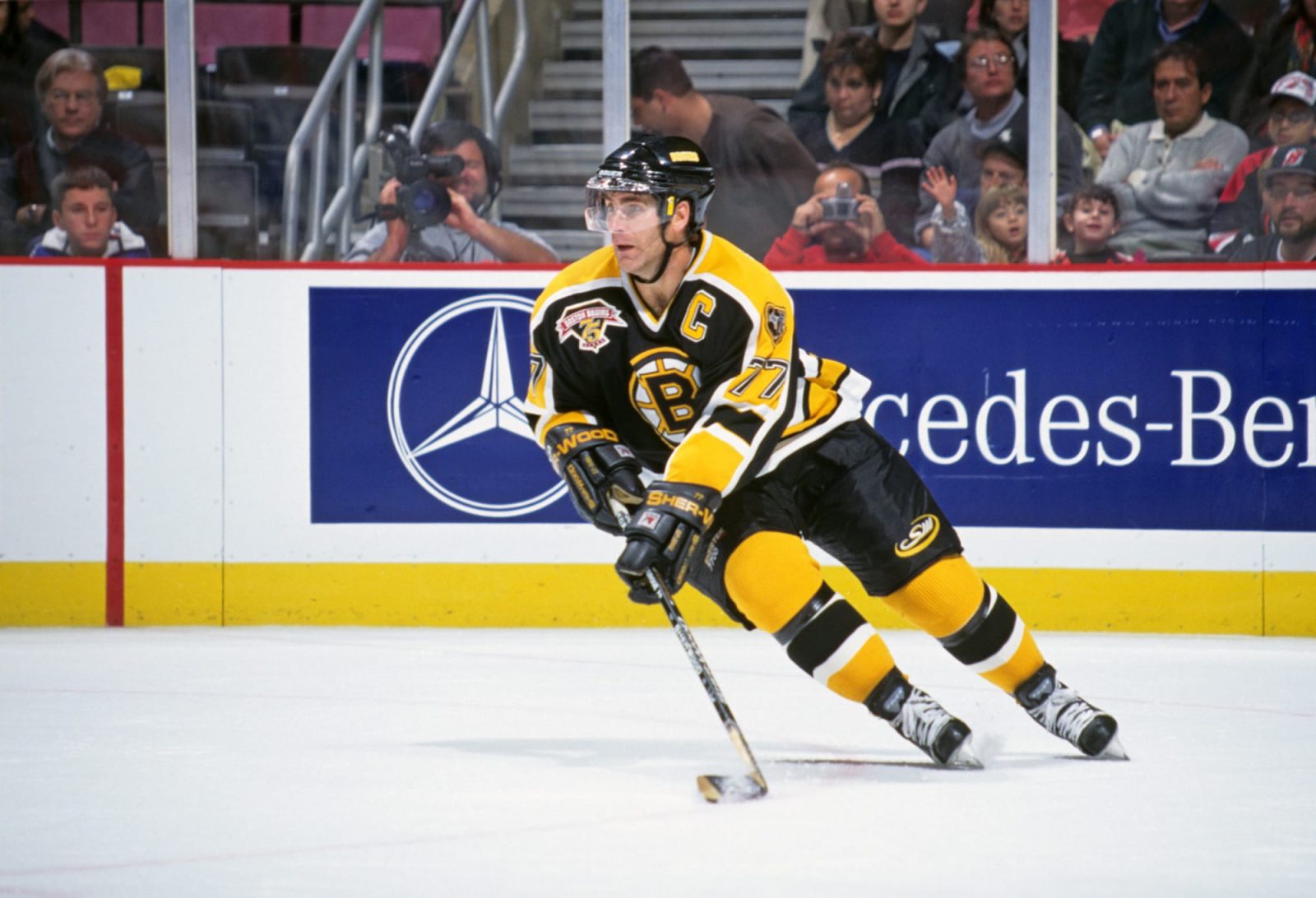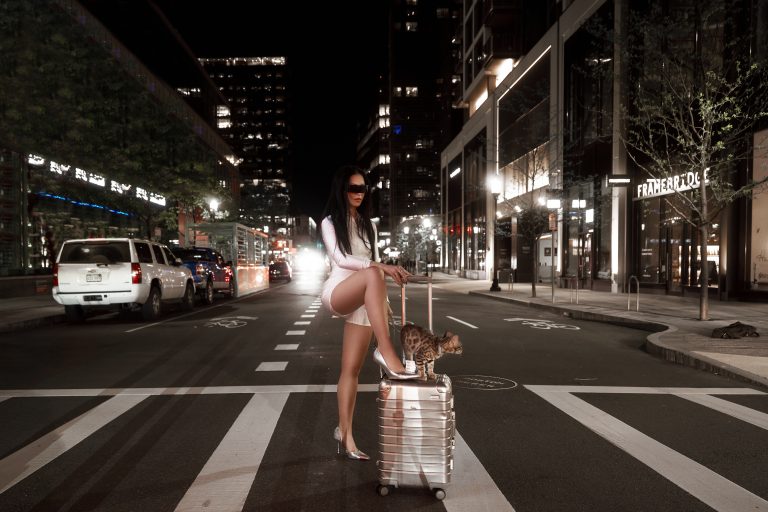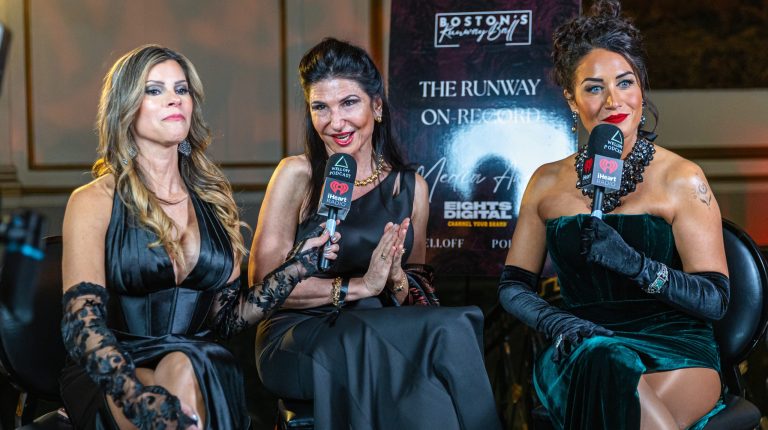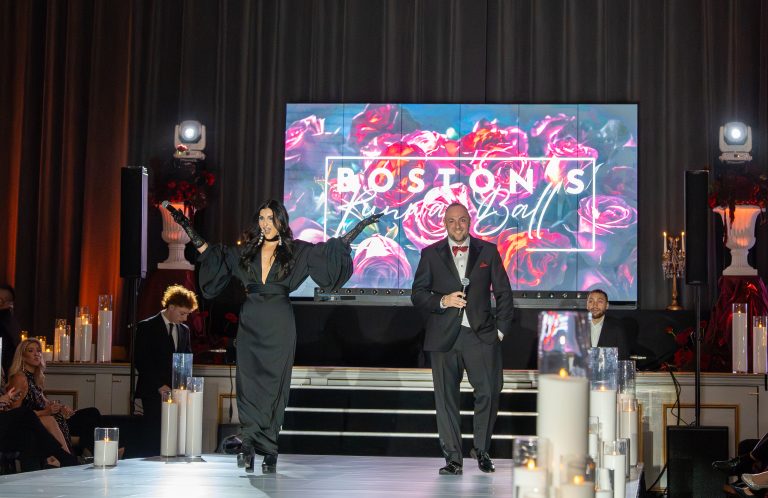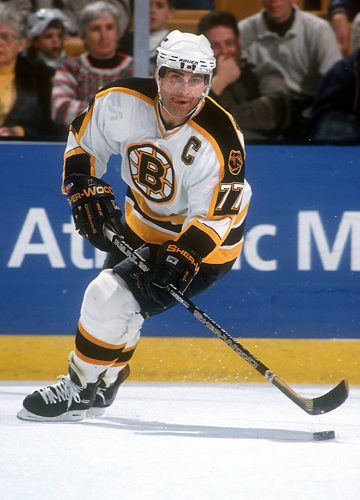
WHEN your professional hockey resume includes line items like “most goals, assists, and points by a defenseman in NHL history,” or “played in 20 All-Star Games,” or “five Norris Trophies,” suffice it to say, you’re going to have some indelible memories in your bank.
But for Ray Bourque, who retired from the NHL in 2001, after finally winning the Stanley Cup as a member of the Colorado Avalanche that season (he was traded from Boston to Colorado during the 1999-2000 campaign), it’s not the statistical accomplishments or personal awards that he recalls most clearly when asked about the most memorable moments of his career.
“First, it has to be winning the Cup with Colorado,” he says. “I got traded on March 6, 2000, and that year we got to the semifinals but lost to Dallas in Game 7.”
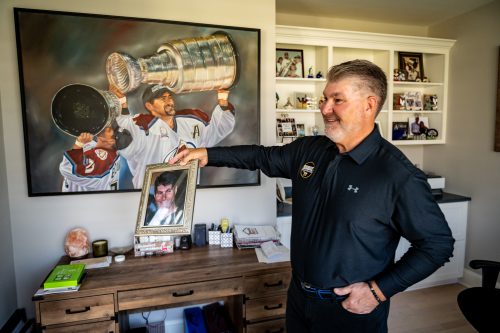
Bourque was a free agent, but he knew he wanted to stay in Denver. “So, I asked Pierre LaCroix, the Avs’ general manager, for a one-year contract. And he said, ‘No, I’m going to give you a two-year deal,” Bourque says. “I said, ‘But I only want to play one year.’ He said no. He gave me a million less than what I’d been making for the first year of the deal, and a lot more the second year. He said, ‘If you don’t play the second year, we’ll give you the extra million, and that’s it.’”
The season came down to two games, with Colorado trailing the New Jersey Devils, three games to two in the Stanley Cup Final. “I knew that Game 6 could be my last game, so I flew out all of my family to New Jersey — my siblings, my dad, my wife’s siblings, her dad, all my best friends,” Bourque says. “Of course, we win. So, then I fly them all to Colorado because I know that’s my last game. It was an amazing feeling those two games. You’re really taking everything in.”
After the Avalanche defeated the Devils, 3-1, in Game 7, the team and their families celebrated together at a local Denver chop house. But when it was time to head home, the fun really started.
“I’ve got a 15-passenger van that’s driving everyone around with a big cooler in it,” Bourque remembers. “At the end of the night, Pierre says, ‘Take the Cup home with you.’ So, I put it in the front seat, and we go back to my house. When we turn on to my street, it’s 2:30 in the morning. We start beeping the horn! I put the Cup on the sidewalk and the cooler in the street, and we were there until 5:30 with people coming out of their houses and to celebrate.”
Asked about his top Bruins moment, Bourque comes up with two memories.
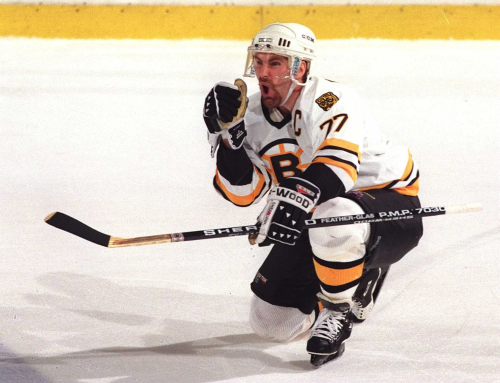
“What I hear about the most from fans is the Phil Esposito jersey retirement,” Bourque says of the December 3, 1987, event at Boston Garden. “The building only held 14,000, but there had to be 100,000 people there because everyone I meet was at the game.”
At the time, Bourque wore No. 7, the jersey number being retired for Esposito that night. “My first training camp, I wore No. 29, and then I show up for my first regular season game (in 1979) and No. 7 is in my stall. I knew who wore the number, but I just played. I was happy to be there, and I had an amazing year.”
Bourque says there was an ongoing feud between Esposito and then-Boston general manager Harry Sinden, dating to when Esposito was traded away. “They were mad at each other, so there wasn’t a thought of retiring the number. Harry wouldn’t do it, and Phil wouldn’t have accepted it,” he says.
In the mid-80s, there was a thaw in the relationship and by late 1987, the plan to retire Esposito’s No. 7 was in place. Well, most of the plan, at least.
“Nothing was talked about with what was going to happen to my jersey number until 1 o’clock on the day of the game,” Bourque says. “I got a call from Terry O’Reilly (then the Bruins’ coach). He said, ‘I’m sitting with Harry, thinking about what we should do.’ I said, ‘Guys, No. 7 is going up in the rafters. I think I should probably just add a seven to my jersey.’”
That was how one of the most famous jersey retirement moments in sports history came about. “We all agreed I’d go out with No. 7 to warm up, come back in the room between the warm-up and the game, put No. 77 underneath No. 7 then go out for the game,” Bourque says. “Then when they called Phil up, I revealed No. 77. No teammates, no fans, no press knew — only management, coaches, my wife, and trainers. That was it. Phil was shocked.”
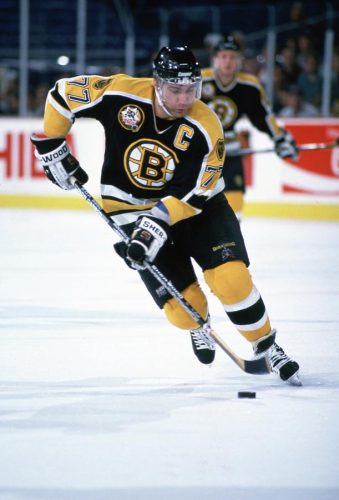
Bourque’s second moment dates to September 26, 1995, when the Bruins hosted Montreal for an exhibition game — the final game at Boston Garden.
“They dressed their full lineup, and we dressed our full lineup. It was like a real game. It was an amazing game, and then they brought all the great alumni and legends out,” Bourque recalls.
The final player announced was Normand Leveille. “He’d had a brain hemorrhage in Vancouver in his second year (1982). He was on his way to being a very special player. I was back in Boston rehabbing an injury and got a call that they didn’t think he’d make it through the night. He did, but he was never the same.”
The bond between the two (Bourque had started his NHL career two years before Leveille) was strong. “Like me, Normand was a French kid from Quebec. But he didn’t speak any English. He was my roommate in camp and on the road his first year. He was always with me. We’d go for lunch or dinner, and I’d order. He had no idea what I’d ordered. He’d just signal to me and say, ‘Same,’” Bourque remembers with a laugh.
Leveille’s dream while recovering from the aneurysm was clear: to skate one last time on the Boston Garden ice. Bourque made sure it happened. “We got skates on him, and I pulled him around the rink. It was very emotional, very special.”
PLEASE ALSO SEE: ‘O CAPTAIN! MY CAPTAIN!’
